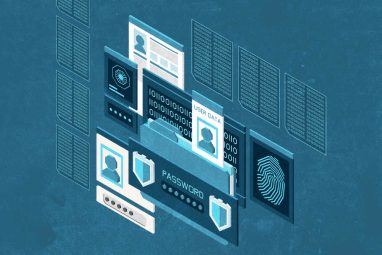Do IT Professionals Fully Understand How AI Tools Work?
New research finds a disconnect between the perceptions and the reality of AI tool usage.
Topics
News
- AI professionals form a redefined workforce. But systemic roadblocks persist, survey finds
- AI-Driven Scams Surge as Microsoft Blocks $4 Billion in Fraud Attempts
- Identity-based Attacks Account for 60% of Leading Cyber Threats, Report Finds
- CERN and Pure Storage Partner to Power Data Innovation in High-Energy Physics
- CyberArk Launches New Machine Identity Security Platform to Protect Cloud Workloads
- Why Cloud Security Is Breaking — And How Leaders Can Fix It

[Image source: Anvita Gupta/MITSMR Middle East]
Although there is a strong push for explainable AI, there is a long-held pursuit of the more opaque, the more advanced the system is thought to be. If you look at the AI-powered automated decisions that define our present or those that will have a possibly more profound impact in the future, it’s becoming increasingly clear that the greater the impact that AI will have, the less we will understand how or why.
Many don’t even know how it works and how it arrives at decisions and outcomes. There is a sense of mystery surrounding AI tools, even from those in more technical roles. A recent SolarWinds survey found that only two-fifths (22%) of surveyed IT professionals fully understand how AI tools work.
The research highlights the need for more understanding, which could be fueling a disconnect between the perceptions and the reality of AI tool usage.
If businesses want to reap the rewards of AI and for IT teams to adopt AI tools in their day-to-day role, they must invest in training for IT professionals to understand the inner workings of AI tools, specific use cases, and best practices.
While over half (55%) of IT professionals surveyed believe that AI tools will make their jobs easier, and most (90%) believe their colleagues would embrace such tools, the majority (62%) are not currently using AI day-to-day.
The findings of those already taking advantage of AI tools show that their usage is limited to more basic functions than expected. Information gathering and research are the most common uses, with over a quarter (28%) using them. Similarly, 18% use AI tools to help explain complex topics to non-technical colleagues.
A further 14% use AI tools to create documents for internal use, but that number falls to less than one in ten (9%) when creating documents for external use.
When it comes to more technical capabilities, just 16% of those who use AI tools do so to write code. While only 6% use AI to identify flaws and security vulnerabilities in code.
Taken together, the report shows a lack of confidence in AI tools, limiting the use of AI for more complex tasks.
Unknown and maybe even the unknowable has been pursued as a fundamental part of these systems from their earliest stages, but as developments in AI continue to shape our knowledge and business decisions, AI transparency and a collaborative, open discussion between the top management and IT teams is the only way to fasten the adoption of AI tools.
Keen to know how emerging technologies will impact your industry? MIT SMR Middle East will be hosting the second edition of NextTech Summit.





